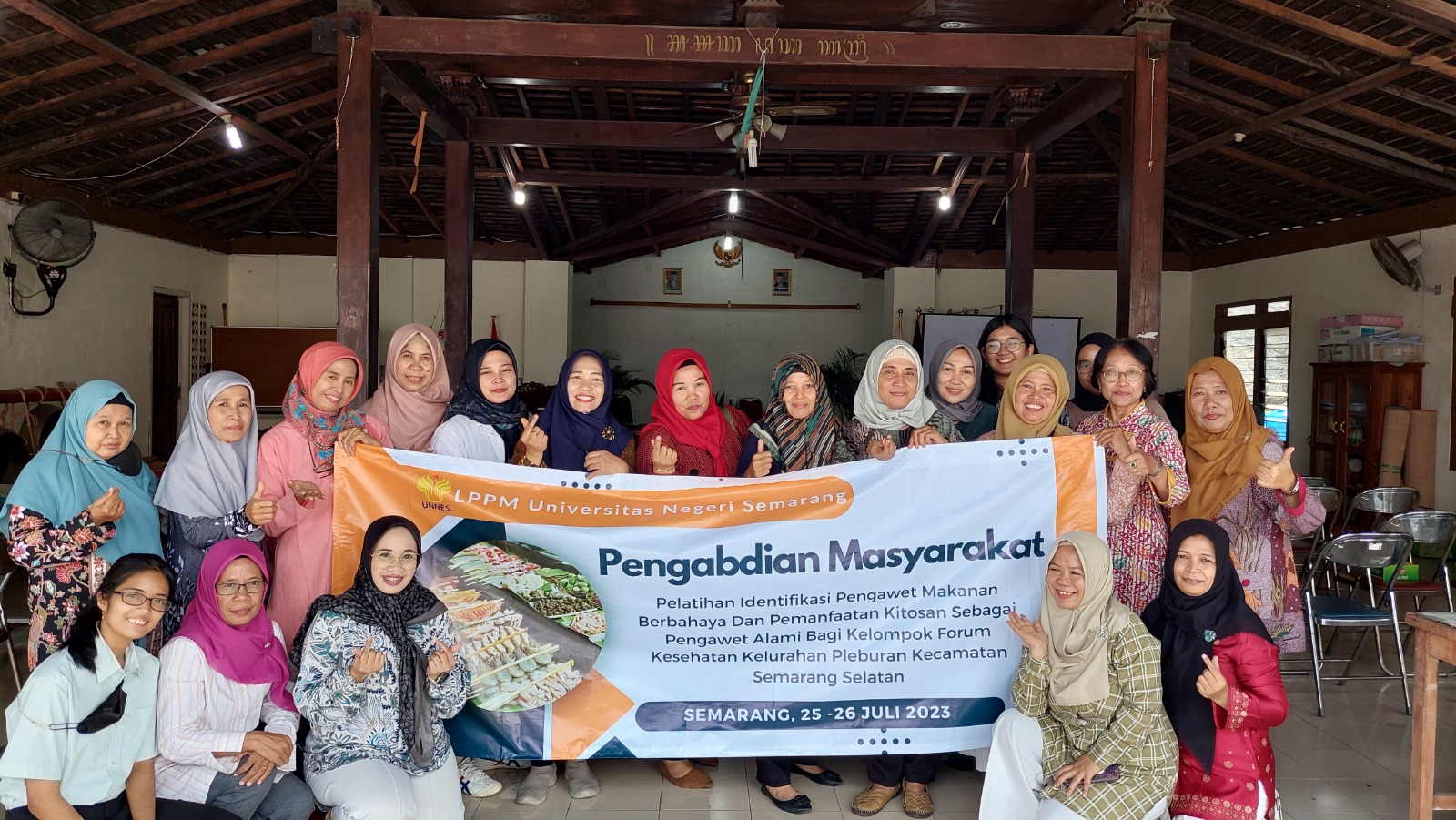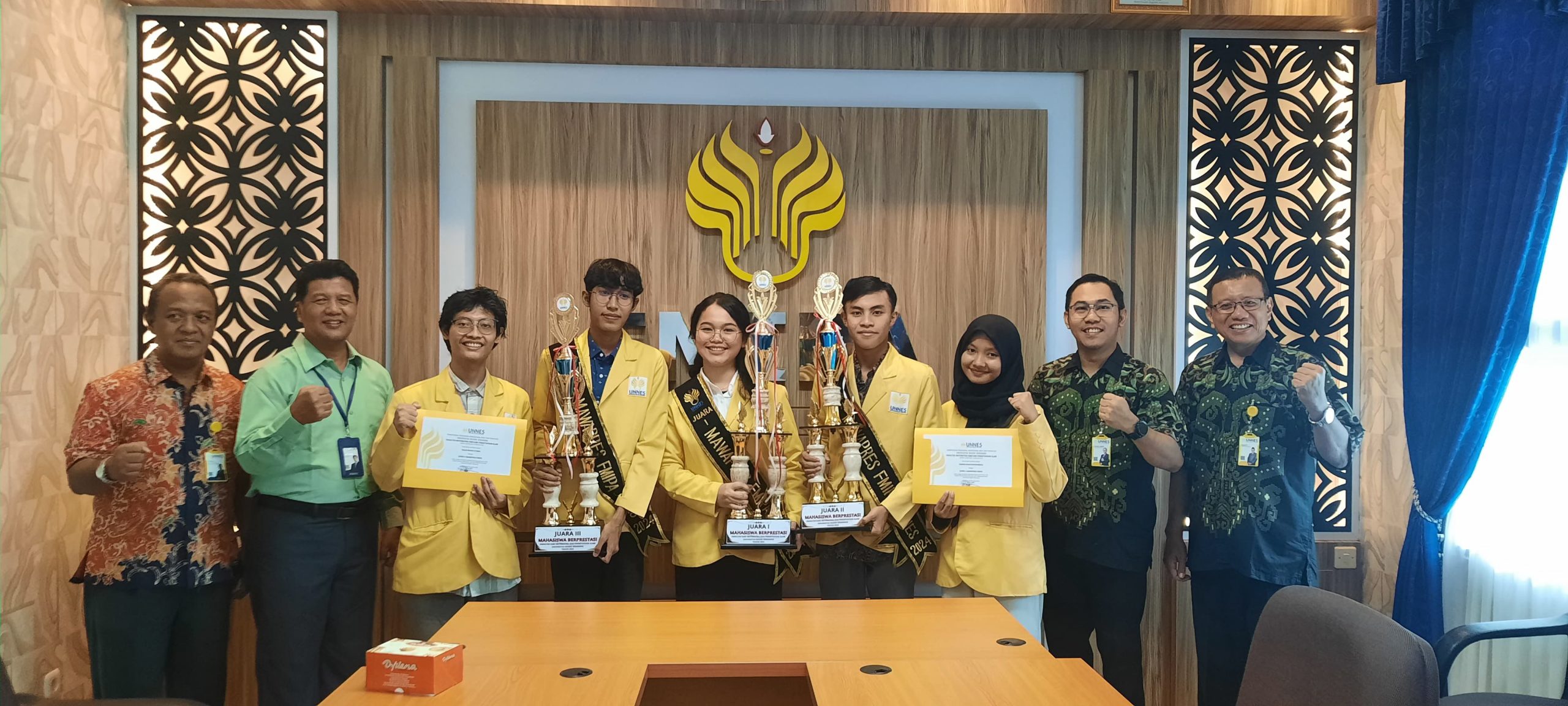Tim pengabdian kepada masyarakat LPPM UNNES pada Selasa, 25 Juli 2023 bertempat di Balai Kelurahan Pleburan Kecamatan Semarang Selatan Kota Semarang telah melaksanakan kegiatan pelatihan identifikasi pengawet makanan berbahaya dan pemanfaatan kitosan sebagai pengawet alami. Pelatihan ini ditujukan bagi anggota Forum Kesehatan Kelurahan Pleburan Kecamatan Semarang Selatan.
Menurut Ketua Tim Pengabdian Kepada Masyarakat Dr. Aditya Marianti, penyadaran masyarakat akan bahaya kandungan bahan pengawet berbahaya pada bahan makanan khususnya boraks dan formalin perlu untuk dilakukan mengingat akumulasi bahan-bahan tersebut di dalam tubuh akan berakibat memicu munculnya penyakit-penyakit degenerative antara lain kanker, gangguan fungsi hati, gagal ginjal dan sebagainya. Untuk itu masyarakat perlu dilatih agar dapat melakukan identifikasi bahan-bahan pengawet berbahaya tersebut dengan menggunakan bahan yang mudah ditemui sehari hari dan dapat memanfaatkan bahan pengawet alami yang aman dan mudah digunakan yaitu kitosan.
Kepala Kelurahan Pleburan yang dalam hal ini diwakili oleh Sekretaris Kelurahan Pleburan Ibu Anna menyatakan pihak kelurahan menyambut baik kegiatan pengabdian masyarakat ini dengan harapan kegiatan ini dapat meningkatkan pengetahuan dan keterampilan anggota FKK.
Menurut Ketua Forum Kesehatan Kelurahan Pleburan Dwi Yuliwati, kegiatan pengabdian masyarakat ini sangat bermanfaat bagi anggota FKK yang dalam kesehariannya berperan melakukan kegiatan penyuluhan dan pendampingan di masyarakat khususnya hal-hal yang berkaitan dengan kesehatan lingkungan, pendampingan lansia dan kegiatan lainnya. Diharapkan anggota FKK dapat mendesiminasikan pengetahuan yang diperolehnya dalam kegiatan pengabdian kepada masyarakat ini agar masyarakat menjadi lebih waspada terhadap bahan pengawet berbahaya dalam bahan makanan dan memiliki alternatif untuk mengawetkan menggunakan bahan alami yang aman.
Menurut salah satu narasumber dari tim pengabdian kepada masyarakat LPPM UNNES, Safira Chairani, M.Biomed, bahaya dari bahan pengawet berbahaya tersebut dapat dikurangi dengan mengurangi jumlah yang dikonsumsi, menjarangkan waktu pengkonsumsian dan mengkonsumsi antioksidan serta mengganti pengawet dengan bahan alami. Salah satunya adalah kitosan yang berasal dari proses deasetilasi senyawa kitin pada cangkang crustacea misal udang dan kepiting. Kitosan dapat berfungsi sebagai pengawet alami karena sudah terbukti memiliki kemampuan sebagai anti bakteri.
Agar masyarakat dapat mengidentifikasi apakah bahan makanan tersebut mengandung bahan pengawet berbahaya maka tim pengabdian kepada masyarakat UNNES memberikan pelatihan keterampilan mengidentifikasi bahan pengawet berbahaya boraks dengan menggunakan larutan kunyit yang dan getah papaya untuk formalin. Selain itu juga dilatihkan bagaimana mengawetkan makanan menggunakan kitosan cair. Kegiatan pelatihan ini tidak hanya diikuti oleh anggota FKK Kelurahan Pleburan namun juga diikuti oleh perwakilan ibu-ibu PKK, perwakilan pedagang yang tergabung dalam UMKM makanan, Forum Lansia, dan Perwakilan dari Karang Taruna. Kegiatan juga dihadiri oleh Ketua LPMK Kelurahan Pleburan Kecamatan Semarang Selatan Kota Semarang.





